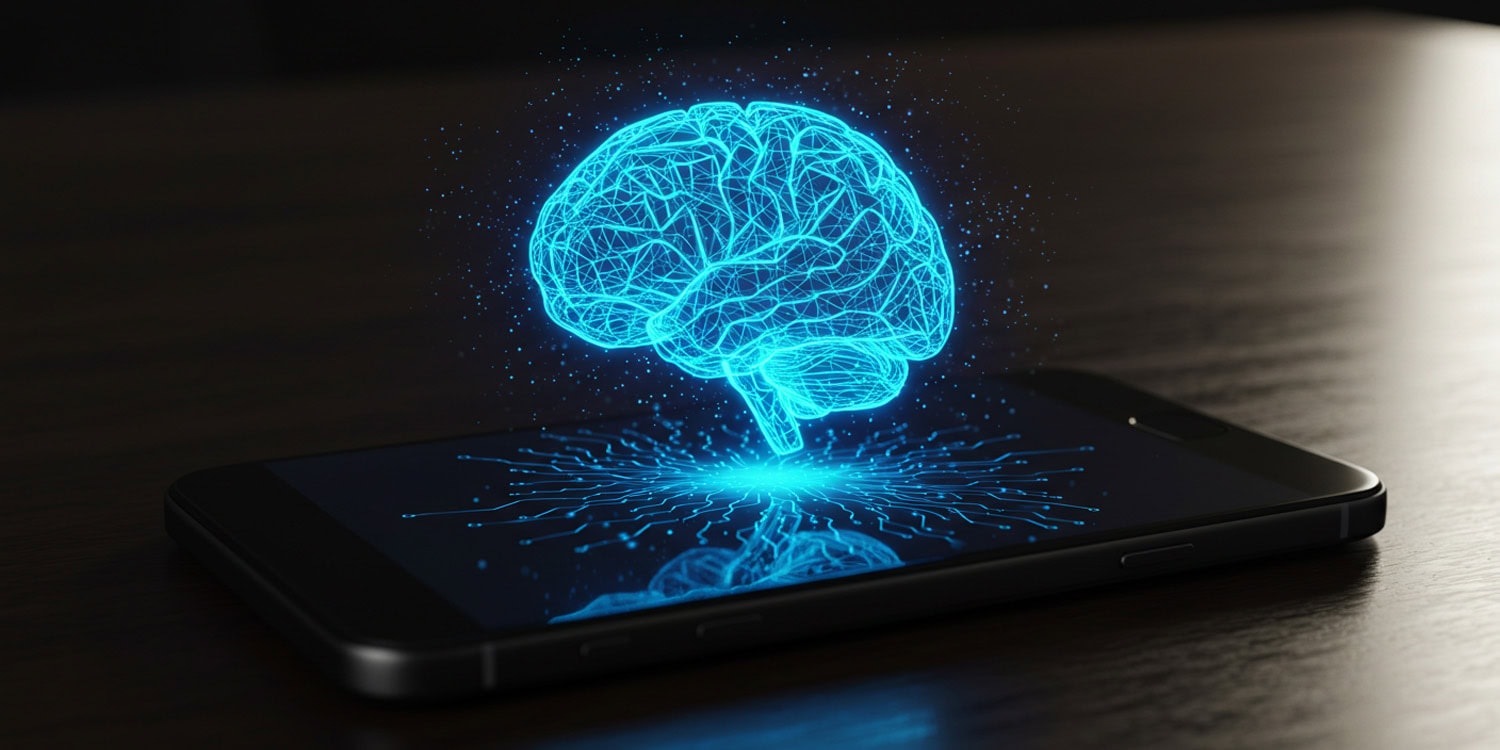Spending hours each day connected to the internet through our smartphones has become the norm for many. However, new research indicates that taking a break from this constant online access can lead to noticeable improvements in mental health, overall happiness, and the ability to focus. A study published in PNAS Nexus found that when people blocked mobile internet on their smartphones for just two weeks, they experienced better mental well-being, felt happier, and showed improved attention spans.
The motivation behind this research stems from growing concerns about the potential negative effects of smartphone use on our minds and emotions. Smartphones offer unparalleled convenience, putting a wealth of information, entertainment, and social connections at our fingertips at all times. While these devices offer many advantages, there is a rising tide of public worry that constant smartphone use might be harming our cognitive abilities and emotional state.
Surveys reveal that a significant portion of smartphone users are concerned about using their devices too much. Specifically, a 2022 poll showed that nearly 60% of American smartphone users, and an even higher 80% of those under 30, feel they over-rely on their phones. These widespread worries are echoed in popular commentary, with some observers suggesting smartphones are “hijacking our minds” and negatively impacting an entire generation.
Supporting these concerns, previous studies that examined the relationship between smartphone use and well-being have found links between heavier smartphone use and poorer subjective well-being, increased mental health issues, and reduced attentional capabilities. However, much of this prior research has been correlational, meaning it can show that two things are related but not necessarily that one causes the other. To address this gap, researchers wanted to investigate whether limiting access to mobile internet on smartphones would directly cause improvements in these areas. They designed a study to specifically target the feature that makes smartphones so powerful – their ability to connect to the internet from almost anywhere.
The researchers aimed to provide solid, experimental evidence to answer a question relevant in our increasingly digital world: if we were not constantly connected to the internet via our phones, would our minds and emotional well-being benefit?
“Smartphones have drastically changed our lives and behaviors over the past 15 years, but our basic human psychology remains the same,” explained study author Adrian Ward, associate professor of marketing at the University of Texas at Austin. “Our big question was, are we adapted to deal with constant connection to everything all the time? The data suggest that we are not.”
To explore this question, the researchers conducted a month-long study involving 467 participants from the United States and Canada. Participants were recruited online through a platform called Prolific. To participate, individuals had to be iPhone users because the application used to block internet access was only compatible with iPhones. The average age of the participants was 32 years old, and 63% were women. The group represented a range of educational backgrounds and ethnic identities, and included students, individuals employed full-time and part-time, and others.
The study employed a randomized controlled trial design, which is a strong method for determining cause and effect. Participants were randomly assigned to one of two groups: the Intervention group and the Delayed Intervention group. Both groups used their smartphones as normal at the beginning of the study. Then, for the first two weeks, the Intervention group had their mobile internet access blocked, while the Delayed Intervention group continued to use their phones without restrictions.
For the following two weeks, the roles reversed: the Intervention group regained full mobile internet access, and the Delayed Intervention group had their mobile internet blocked. This “cross-over” design allowed researchers to compare the effects of blocking internet access against a baseline of normal use within the same individuals, and also to see if any positive effects persisted after internet access was restored.
To block mobile internet access, participants in the intervention phases were instructed to install a smartphone application called Freedom. This application was set up to block all mobile internet access, including both Wi-Fi and cellular data, on their smartphones for two weeks. Importantly, the block specifically targeted internet access, while allowing participants to continue using their phones for text messages and phone calls. They could also still access the internet through other devices like desktop computers or laptops. This design allowed the researchers to isolate the impact of mobile internet access specifically, rather than completely disconnecting participants from all digital technologies.
A key aspect of this study was the objective tracking of whether participants actually adhered to the internet block. The Freedom application automatically recorded whether the internet block was active throughout the intervention period, providing a measure of compliance. Participants completed surveys and cognitive tests at three points in time: at the beginning of the study (baseline), after the first two weeks, and after four weeks. These assessments measured subjective well-being, mental health, and attention.
Subjective well-being was measured using a standard model that includes three components: positive emotions, negative emotions, and satisfaction with life. Mental health was assessed using a range of measures designed to identify symptoms of depression, anxiety, anger, social anxiety, and difficulties in personality functioning. Attention was evaluated in two ways: through a self-report questionnaire that asked about attentional lapses and mind-wandering, and through an objective computer task called the gradual onset continuous performance task (gradCPT). The gradCPT is designed to measure sustained attention – the ability to maintain focus over time – by requiring participants to respond to certain images while withholding responses to others.
In addition to these main outcomes, the researchers also measured several factors that might explain why blocking mobile internet could lead to improvements. These potential mediating factors included social connectedness, feelings of self-control, how participants spent their time (categorized as time in the offline world, time on digital communication, and time consuming media), and sleep duration. Finally, they also assessed baseline levels of “Fear of Missing Out” (FoMO) and symptoms of attention deficit hyperactivity disorder (ADHD) to see if these factors influenced how much people benefited from the internet block.
The study found that blocking mobile internet access for two weeks had a positive impact on several aspects of psychological functioning. Participants in the Intervention group showed significant improvements in subjective well-being and mental health during the first two weeks when their internet was blocked. These improvements were observed as increases in positive emotions and life satisfaction, and decreases in symptoms of anxiety, depression, and other mental health challenges. Similarly, when the Delayed Intervention group had their internet blocked in the second two weeks, they also experienced comparable improvements in well-being and mental health.
Regarding attention, both groups showed improvements in their ability to sustain attention, as measured by the objective gradCPT task, during their respective internet blocking periods. Participants also reported fewer attentional lapses and improved attentional awareness when mobile internet was restricted. Interestingly, for both well-being and mental health, the positive effects appeared to lessen somewhat after the internet block was removed, although well-being remained significantly higher than at the start of the study. However, for attentional awareness, the improvements seemed to persist even after mobile internet access was restored.
To understand the reasons behind these positive changes, the researchers examined the potential mediating factors. They found that the improvements in well-being, mental health, and attentional awareness could be partially explained by shifts in how people spent their time when they did not have mobile internet access. Specifically, during the internet block, participants reported spending more time engaging in offline activities such as socializing in person, exercising, and being in nature. They also spent less time consuming media. These changes in time use, along with increases in feelings of social connectedness and self-control, and even slightly improved sleep, appeared to contribute to the observed benefits of blocking mobile internet.
Furthermore, the study explored whether certain individual characteristics influenced the effectiveness of the internet block. They found that individuals who reported higher levels of Fear of Missing Out at the start of the study experienced greater improvements in both subjective well-being and mental health when they blocked mobile internet. Similarly, those with more ADHD symptoms at the beginning of the study showed larger improvements in attentional awareness when their mobile internet was restricted. This suggests that people who are more prone to worrying about missing out online or who struggle with attention may benefit even more from taking breaks from constant mobile internet access.
While the study provides valuable insights, it is important to consider its limitations. One limitation is that only about 25% of participants fully complied with the internet block throughout the entire two-week intervention period, based on a strict definition of compliance. However, even with this imperfect compliance, the researchers still observed significant positive effects, suggesting that even partial reductions in mobile internet use can be beneficial. Another limitation is that the study focused specifically on iPhone users, so it is not yet clear if the findings would generalize to users of other types of smartphones.
Future research could build upon these findings by investigating the long-term effects of mobile internet restriction. It would also be valuable to explore these effects in different populations and to examine the optimal duration and strategies for internet restriction to maximize benefits. Further research could also investigate how different types of online content and activities contribute to the observed effects. Finally, a more in-depth examination of the specific mechanisms through which reduced mobile internet use leads to improvements in well-being and attention would further enhance our understanding of the complex relationship between our digital habits and our psychological health.
The study, “Blocking mobile internet on smartphones improves sustained attention, mental health, and subjective well-being,” was authored by Noah Castelo, Kostadin Kushlev, Adrian F. Ward, Michael Esterman, and Peter B. Reiner




